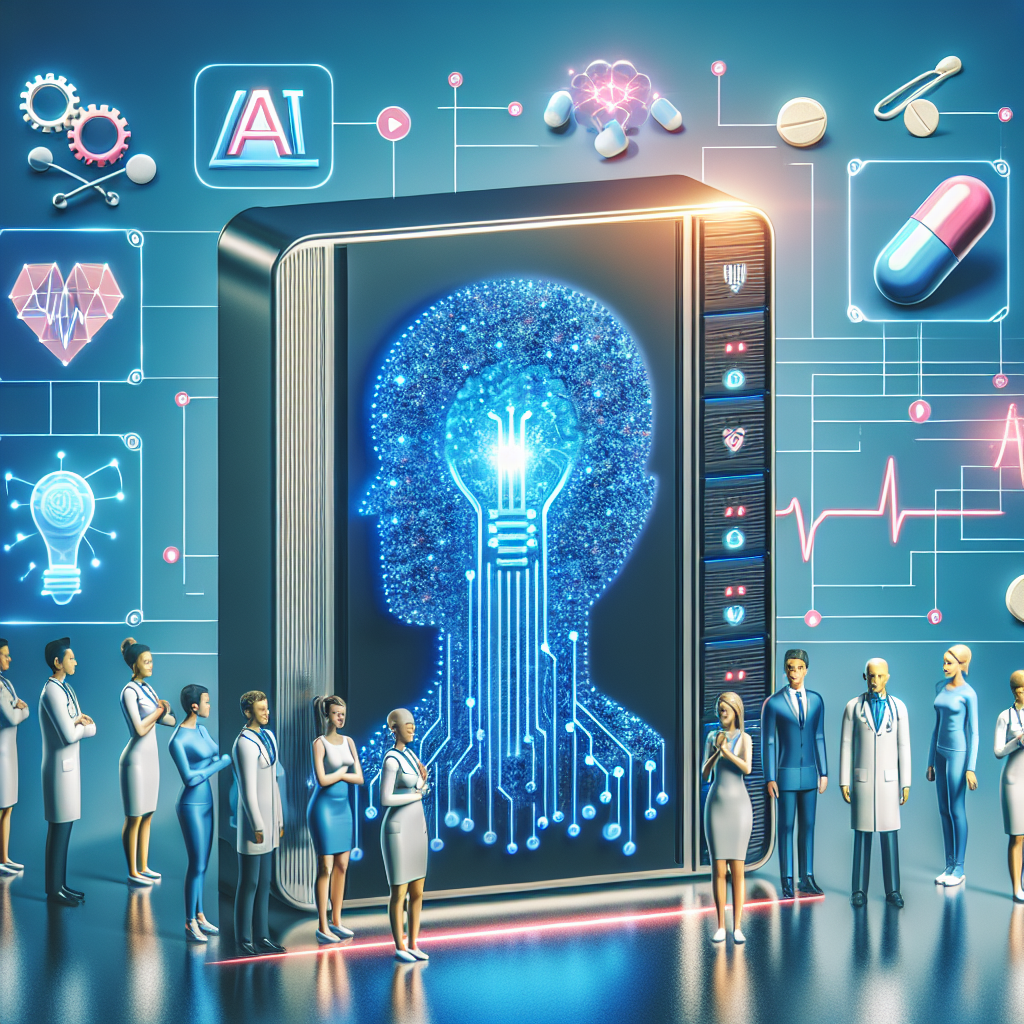The Potential of AI in Predicting Healthcare Trends
Artificial intelligence (AI) has made significant advancements in various industries, including healthcare. One of the most promising applications of AI in healthcare is its ability to predict healthcare trends. By analyzing vast amounts of data, AI can identify patterns and make predictions about future healthcare trends. This has the potential to revolutionize the way healthcare is delivered, making it more personalized, efficient, and effective.
Predicting healthcare trends is crucial for healthcare providers, policymakers, and researchers to make informed decisions about resource allocation, treatment strategies, and public health initiatives. By accurately predicting trends, healthcare organizations can better prepare for potential challenges, improve patient outcomes, and reduce healthcare costs. AI has the potential to enhance the accuracy and speed of predicting healthcare trends, leading to better health outcomes for individuals and populations.
How AI Can Predict Healthcare Trends
AI uses machine learning algorithms to analyze large datasets and identify patterns that may not be apparent to humans. By processing data from electronic health records, medical imaging, wearable devices, and other sources, AI can identify correlations between different variables and make predictions about future healthcare trends. For example, AI can analyze patient data to predict the likelihood of developing certain diseases, identify risk factors for complications, and forecast healthcare resource needs.
AI can also analyze social determinants of health, such as socioeconomic status, education level, and access to healthcare, to predict healthcare trends. By incorporating these factors into predictive models, AI can help healthcare providers identify at-risk populations and develop targeted interventions to improve health outcomes. For example, AI can predict the impact of social determinants on the prevalence of chronic diseases, such as diabetes and heart disease, and guide public health initiatives to address these underlying factors.
In addition, AI can analyze real-time data from sources such as social media, internet searches, and wearable devices to predict healthcare trends. By monitoring trends in public health discussions, online searches for symptoms, and physical activity levels, AI can identify emerging health concerns, track disease outbreaks, and predict healthcare resource needs. For example, AI can predict the spread of infectious diseases, such as COVID-19, by analyzing social media posts, news reports, and mobility data to identify hotspots and predict future transmission rates.
The potential of AI in predicting healthcare trends is vast, with implications for improving patient care, public health, and healthcare delivery. By harnessing the power of AI to analyze data and make predictions, healthcare organizations can better anticipate future healthcare needs, allocate resources efficiently, and improve health outcomes for individuals and populations.
Benefits of AI in Predicting Healthcare Trends
There are several benefits of using AI to predict healthcare trends, including:
1. Improved accuracy: AI can analyze large datasets and identify complex patterns that may not be apparent to humans, leading to more accurate predictions about healthcare trends.
2. Faster insights: AI can process data quickly and provide real-time insights into healthcare trends, allowing healthcare organizations to respond promptly to emerging health concerns.
3. Personalized care: AI can analyze individual patient data to predict healthcare trends at the individual level, enabling healthcare providers to deliver personalized care and tailor treatment plans to each patient’s unique needs.
4. Resource optimization: AI can predict healthcare trends, such as disease outbreaks and patient admissions, to help healthcare organizations allocate resources efficiently and improve operational efficiency.
5. Public health interventions: AI can predict healthcare trends at the population level, enabling policymakers to develop targeted public health interventions and preventive measures to improve health outcomes.
Overall, the potential of AI in predicting healthcare trends is significant, with implications for improving patient care, public health, and healthcare delivery. By harnessing the power of AI to analyze data and make predictions, healthcare organizations can better anticipate future healthcare needs, allocate resources efficiently, and improve health outcomes for individuals and populations.
FAQs
Q: How accurate is AI in predicting healthcare trends?
A: AI has shown promising results in predicting healthcare trends, with studies reporting high accuracy rates in identifying disease outbreaks, predicting patient outcomes, and forecasting healthcare resource needs. However, the accuracy of AI predictions may vary depending on the quality of data, the complexity of the predictive model, and the specific healthcare trend being predicted.
Q: How can healthcare organizations implement AI for predicting healthcare trends?
A: Healthcare organizations can implement AI for predicting healthcare trends by collecting and analyzing relevant data, developing predictive models using machine learning algorithms, and integrating AI insights into healthcare decision-making processes. Collaborating with data scientists, AI experts, and healthcare professionals can help healthcare organizations leverage AI effectively for predicting healthcare trends.
Q: What are the ethical considerations of using AI in predicting healthcare trends?
A: Ethical considerations of using AI in predicting healthcare trends include data privacy, transparency, bias, and accountability. Healthcare organizations should ensure that patient data is protected, AI algorithms are transparent and explainable, biases are minimized, and decisions based on AI predictions are accountable and ethical.
Q: How can AI improve public health interventions through predicting healthcare trends?
A: AI can improve public health interventions by predicting healthcare trends at the population level, identifying at-risk populations, and guiding policymakers in developing targeted interventions and preventive measures. By analyzing social determinants of health, monitoring disease outbreaks, and forecasting healthcare resource needs, AI can help improve public health outcomes and reduce health disparities.
In conclusion, the potential of AI in predicting healthcare trends is promising, with implications for improving patient care, public health, and healthcare delivery. By harnessing the power of AI to analyze data and make predictions, healthcare organizations can better anticipate future healthcare needs, allocate resources efficiently, and improve health outcomes for individuals and populations. By addressing ethical considerations and collaborating with experts in AI and healthcare, healthcare organizations can leverage AI effectively for predicting healthcare trends and enhancing the quality of care and health outcomes.

